Gambia’s Justice Minister Abubcarr Tambadou, has said that OJ Jallow’s removal as Agriculture Minster,has nothing to do with the fertilizer case. ‘Ministry of Justice is conducting a review in to the case;we are not treating the case differently.’
Welcoming Vice President Ousainou Darboe
I wish to congratulate Ousainou Darboe for his appointment as the Vice President of the Republic, becoming the second person to hold that position since our newfound democracy within one and half years. In congratulating Ousainou, I must say his assumption of this high office is not an ordinary matter simply because of his unique circumstances. In a nutshell Ousainou is standing at the gate of history to make or break his future and legacy. Hence it is necessary to remind Ousainou that this position carries a huge weight in every sense of the word.
In July 2016 I paid a fitting tribute in an open letter to Ousainou Darboe when he was illegally jailed for fulfilling his historic national duty to protest in defence of human rights and democracy. I still stand by that tribute letter. In his statement that he never got to deliver to the court, he stated his convictions and values among which include his unflinching belief in the rule of law, human rights and adherence to sacred values of humanity. For that matter he put it to the judge that he would not seek leniency from the court for doing that he would be legitimizing injustice and persecution perpetrated by that court.
I had never been more inspired and emboldened when I read that address hence I had no choice but to place my fingers on the keyboard to draw a fitting tribute to him. In my tribute I extolled his leadership qualities and expressed a strong belief that Ousainou is poised to become a leader of our country someday. Today he is a vice president!
There is no doubt that even without the position of vice president Ousainou Darboe is the most powerful and most influential leader in the Gambia. He commands more respect and attention than any political leader. This status is now more than ever strengthened as he combines the two positions of party leader of the biggest political party and Vice President of the Republic. These positions bring huge responsibility, with potential risks or opportunities, on the man for which he needs to do deep reflection as to the way forward.
For example we know that Pres. Adama Barrow has referred to him as his ‘political godfather’. It is believed by many that Ousainou has far more influence on the president than anyone else. It is not farfetched to think that Pres. Barrow talks to and listens to Ousainou more than anyone. Hence it is important for Ousainou to realise therefore that the progress, peace and prosperity of this country are heavily placed on his shoulders.
While Ousainou enjoys huge favourable perception, it is also true that he is probably the most vilified public officer and politician in the new Gambia. He is the most distrusted and misinterpreted politician and there are many citizens who wish him nothing other than the worse calamity imaginable.
These positive and negative perceptions about a politician contain opportunities and strengths on one hand as well as risks and threats on the other. They could enable a smart politician to therefore transform the negatives into positives and strengthen the positives to even greater positives. Ousainou therefore has a great opportunity today to not only raise his own profile and status to higher heights, but he also has the unique chance to change hearts and minds of citizens towards national reconciliation, patriotism and cooperation. The ball is in his court.
If I have to give any advice to Ousainou as the Vice President, I will tell him that the VP is indeed the person in charge of the Cabinet hence the Government. The VP is the technical and action person for the President. The success of the President rests with the quality of Vice President he has. A Vice President is like the captain in a football team. He does not have to be the best player but he must command and lead to ensure team work so that strikers can score the goal. In modern political settings, the President constitutes the cabinet but the head of Cabinet is the VP.
As Vice President, Ousainou must not only provide leadership and coordination to implement Pres. Barrow’s vision, but he has to ensure that Ministers are held to account in order to deliver results. A VP is like a chief operations officer in a business company or a program manager in an NGO. The VP must therefore ensure that Government business is run efficiently and effectively in a transparent manner. Therefore if Barrow is to succeed it is because there is an effective, pragmatic and results-oriented Vice President.
My beef with former VP Tambajang is that she was not running the government as a business or an NGO where performance, results and efficient delivery matter. She created and nurtured this misguided idea and image of motherhood and fatherhood in statecraft hence her inability to make ministers deliver. There are no mothers and fathers in our statecraft. There are only Public Servants who just deliver services according to the law. It is because of this misconception that Fatoumatta Tambajang did not only fail to provide the necessary leadership but also became out of tangent with her functions and the reality.
Ousainou must therefore overcome this malaise if he is to succeed and prove all the doomsayers wrong. Furthermore Ousainou must realise that his future political objectives are directly linked to this current position of VP. Hence the need for him to deliver is a necessary prerequisite for his personal and party political objectives in future. Political expediency, maslaha or patronage will not earn him durable and sustainable political goods. He must insist only on the values and standards of good governance, democracy and human rights to ensure that ministers, ministries and departments deliver on their terms of reference.
He must beware of sycophants and surrogates and architects of dictatorship. These kinds of people can be found within his family and friends, in his party, in the government, in the private sector or the civil society and indeed in the wider society as a whole. Either for positions, privileges or fame or out of sheer ignorance or dishonesty such people could derail him severely. He must not buy into their misguided narratives of his invincibility and infallibility. No human being is invincible or infallible. He must not allow them to massage his ego to assume that he alone can do it. Rather Ousainou must have the strength, courage and honesty to differentiate between falsehood and truth and to remain committed to only truth and justice for the Gambia.
In a nutshell Ousainou must bring about system change. He must seek real reforms in the civil service and security sector. He must guide the Pres. Barrow and the Cabinet to deliver tangible socio-economic transformation and the building of strong institutions. He must speed up the transition process in all facets by making sure that Cabinet Ministers and the Secretary General perform and deliver results. Therefore if Ousainou underperforms or fails there is no doubt that Barrow and his Government will also fail woefully. In that case, Ousainou’s own political future will be doomed as well!
For the Gambia Our Homeland
Madi Jobarteh
Press Conference By Justice Minister Tambadou (Full Statement)
At a press conference held at his office Monday, Justice Minister, Abubacar Tambadou has disclosed that forensic scientists, in cooperation with the Gambia Police Force forensic unit, conducted examinations on the human remains that were exhumed sometime last year including the presumed remains of Solo Sandeng.
He added that Preliminary results have positively identified the remains as those of Solo Sandeng and three of the December 30thincident, ie, Njagga Jagne, Lamin Sanneh, and Alhaji Jaja Nyass
Below we produce the full statement.
PRESS BRIEFING July 2018
TRRC
As you must all be aware, the process of nominations for appointment of Commissioners to the TRRC has commenced. Nominations of candidates in the greater Banjul area and the diaspora have already been received. The parallel process for the regional nominations has now commenced and should be completed by the end of this week. The next steps will be as follows:
- nominations from the greater Banjul area, the diaspora and the regions will be compiled and the Ministry will review the full list and identify the 11 commissioners based on established criteria under the TRRC Act;
- The shortlisted 11 commissioners together with the long list of nominees will be submitted to the transitional justice Technical Committee for their review and comments. The TC includes members of civil society; government representatives, some representatives of the diplomatic community under the chair of the MOJ;
- The final list of 11 commissioners shall be published in the media through newspapers and radio announcements inviting the public to submit objections on the eligibility of any of the candidates as per the TRRC Act;
- His Excellency, the President will then appoint the 11 commissioners in consultation with the list of organizations identified under the TRRC Act.
Our objective is to have the Commission start its first sitting in August. Meanwhile, we have been engaged in a series of activities such as the provision of training for media practitioners on truth commission reporting. I believe the Executive Secretary Mr Baba Galleh Jallow has been providing information on this.
CRC
The members of the Constitutional Review Commission have been sworn in as you are well aware and they have started work in earnest. They will be conducting their work independently and all questions about their activities should now be referred to them.
COI
I wish to announce that last week, the Secretary to the Commission, Mr Alhaji Kurang, made a number of unsubstantiated allegations against Counsel Amie Bensouda. Based on information available to me, Mr Kurang acted beyond the confines of his administrative authority which was principally to execute the orders of the Commission and not to question the wisdom or motivations underpinning those orders. As a result of his actions, and in consultation with the Commission, Mr Kurang’s position as Secretary to the Commission has now become untenable under the circumstances. We wish to thank him for his service and wish him luck in his future endeavours.
Forensic Examinations
I am also pleased to announce that over the past few weeks, I received a team of forensic scientists with the kind support of Justice Rapid Response, an international NGO working in the area of international criminal justice. The forensic scientists, in cooperation with the Gambia Police Force forensic unit, conducted examinations on the human remains that were exhumed sometime last year including the presumed remains of Solo Sandeng. Preliminary results have positively identified the remains as those of Solo Sandeng and three of the December 30thincident, ie, Njagga Jagne, Lamin Sanneh, and Alhaji Jaja Nyass. However, thse results are still subject to confirmation which we hope to receive soon.
NHRC
We have issued advertisements for the position of commissioner to the National Human Rights Commission. We will be submitting the list of applicants to the selection panel made up of representatives of Tango, Gambia Bar Association, Gambia Federation of the Disabled, National Youth Council, Female Lawyers Association of The Gambia, and the Gambia Press Union in accordance with the NHRC Act. The selection panel shall shortlist 9 candidates for membership of the Commission and cause the shortlist of candidates to be published in the Gazette for 14 days for any possible objections. Subsequently, the shortlisted candidates will be presented to the National Assembly for approval of 5 of the candidates as members of the Commission.
Criminal Justice Reform
We have now secured assistance from the South Korean Government through the Korean International Cooperation Agency to support the criminal justice and prison reform process including criminal justice legislative reforms. This assistance will enable us conduct a comprehensive review of our criminal law and procedure with a view to adopting international best practices and repealing retrogressive laws. The project will be executed through the United Nations Office on Drugs and Crime (UNODC).
I thank you all.
Janneh Commission Parts Company With Alhagi Kurang
The Attorney General and Minister of Justice, Abubacarr Tambadou has said that Mr. Alhaji Kurang’s position as Secretary to the Janneh Commission ‘has become untenable’. The attorney general was speaking during a press conference at his office on Monday.
‘I wish to announce that last week, the Secretary to the Commission, Mr Alhaji Kurang, made a number of unsubstantiated allegations against Counsel Amie Bensouda. Based on information available to me, Mr Kurang acted beyond the confines of his administrative authority which was principally to execute the orders of the Commission and not to question the wisdom or motivations underpinning those orders’.
He added ‘As a result of his actions, and in consultation with the Commission, Mr Kurang’s position as Secretary to the Commission has now become untenable under the circumstances. We wish to thank him for his service and wish him luck in his future endeavours’.
Serious allegations (see below) against Amie Bensouda said to be from an insider at the Janneh Commission has been making the rounds on Whatsapp groups in The Gambia recently. Whether these are the exact words of Alhaji Kurang is yet to be confirmed as the Minister did not go into details.
‘Crisis at the Janneh Commission.
Commission staff want Amie Bensouda to quit NOW
Following a 7-page damning petition written by the secretary to the commission Alhaji Kurang, all hell has broken loose at the Janneh Commission of Inquiry into the financial transactions of the former President Yahya Jammeh and his close associates.
The highlights of the petition include (i) that Amie Bensouda is implicated in the sale of Ocean Bay Hotel as she was paid D7million dalasis by Social Security and Housing Financing Corporation (SSHFC) as a transaction lawyer (ii) that Amie Bensouda’s son the newly elected mayor of KMC Talib Ahmed Bensouda showed keen interest in acquiring the Yahya Jammeh tractors that the Commission put for auction for D1.5M each.
But Amie Bensouda queried the price and insisted that the price should be brought down so that her son could buy them all. The staff refused and reported the matter to another commission Saine, who evaluated the price at US$15, 000. Then there was directive from the Office of the President to stop the auctioning of the tractors (iii) The petitioner further alleged that Amie Bensouda was implicated in the financing of rice importation by Muhammed Bazzi through Standard Chartered Bank, as she was paid US$75,000 as a transaction lawyer.
Based on the following, the staff concluded that Amie Bensouda has lost the moral authority to serve on the Commission.
Readers would recall that as former solicitor-general, Amie Bensouda used to collect … from parastals for services rendered to them without sharing the loot with her colleagues in the AG Chambers. When she went into private practice, she has been bleeding the parastals to the point of death.
Meanwhile, Amie Bensouda has threatened that she would not quit in that she is the power behind the new government, boasting that nobody can do her anything in the new dispensation.
She claims that she has Ousainou Darboe in her palms and also boasts that she was responsible for the removal of Fatoumata Jallow Tambajang as Vice President. It is a well known fact that her blood brother is the Secretary General and head of the civil service’.
Sankareh Sworn In As New Spokesperson For Gov’t
Ebrima Sankareh, the newly sworn Government Spokesperson has said that he is the mouthpiece for all government departments and institutions including the Office of the President.
Mr. Sankareh was speaking during the swearing in ceremony of senior government officials presided over by President Barrow at The State House Monday. As the new government spokesperson, he too took the oaths of office, allegiance and secrecy respectively.
According to a press release from The Office of The President at the time of his appointment, the new spokesperson is a former high school English and History teacher who brought with him a wealth of experience and academic training both as a broadcast and print journalist having worked for Radio Gambia, the BBC, Radio Deutchewelle, The Gambia Daily Observer and The Point Newspaper.
Ebrima G. Sankareh graduated with double BA degrees in Political Science and History from North Carolina State University in Raleigh, NC, USA.
He attended the Graduate Schools of The University of North Carolina at Charlotte and Gardner-Webb University in Boiling Springs, North Carolina, U.S.A., where he received the Master of Arts degree in English Literature.
Sankareh then proceeded to The University of Birmingham at Edgbaston in the U.K. where he pursued the Doctor of Philosophy degree in African Studies specialising in English Literature and just submitted his PhD thesis for examination.
During his formative years, Mr. Sankareh attended Nusrat High School and St. Augustine’s High School Sixth Form. He also took the High Teachers’ Diploma from The Gambia College & Bristol University, U.K.
Meanwhile, Mr Sankareh promised to give weekly updates to the press.
“Thank You For Appointing Me To Serve In An Elevated Capacity” VP Ousainou Darboe
The newly sworn Vice President, Ousainou Darboe has thanked President Barrow for appointing him to an elevated capacity.
VP Darboe made these statements at the swearing in ceremony of eight Cabinet Ministers, Government Spokesperson and a Permanent
Secretary held at State House, Banjul.
“Thank you for appointing me to serve you in an elevated capacity,” VP Darboe said.
The new VP along with eight Ministers, Amadou Sanneh Trade, Dr Isatou Touray Health, Mambury Njie Finance, Momodou Tangara Foreign Affairs, Lamin N Dibba Agriculture, Ebrima Sillah Information, Musa S Drammeh Local Government, Hadrameh Sidibeh Youth and Sports, Ms Ada Gaye Permanent Secretary Ministry of Agriculture and Ebrima Sankareh as Government Spokesperson took the prescribed oaths of Office, Allegiance and Secrecy respectively.
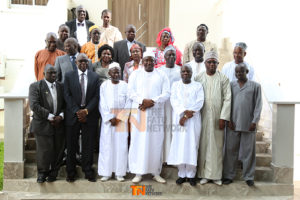
Darboe expressed confidence in the President after taking oath while pledging to serve President Barrow’s agenda along with national interest. He added that the journey toward democracy, rule of law and social justice is only achievable with collective work.
“The swearing in ceremony is not a mere ritual but its a commitment towards national duty,” he said.
President Barrow in his statements reiterated the fight to end corruption as stated in the 35th AU Summit.
“The country can no longer move on a snail pace,” President Barrow said.
“Together we should readjust ourselves to serve the national interest,” he added.
President Barrow went further to called for institutional and legal reforms to achieve positive development, saying it cannot be business as usual.
Meanwhile, Ebrima Sankareh, the newly sworn Government Spokesperson said he is the mouthpiece for all government departments and institutions including the Office of the President. He promised to give weekly updates to the press.
“Africa Union (AU) $148 billion Are Stolen by Leaders & Civil Servants Every Year”.
Alagi Yorro Jallow
Thabo Mbeki rattles Africa’s corrupt leadership. In his words, “We want an Africa that is free from poverty: What kind of leadership do we need to end that poverty? We need a critical assessment of ourselves as Africans. Have you provided a kind of leadership that is suitable? Where did we go wrong? We need to sit as peers and speak frankly: The President, you are misbehaving. You are stealing public resources. You have accessed power to put money in your pockets. This is not the leadership we want. We are not doing that sufficiently because we are afraid to speak frankly about the wrong things we are doing”. Mbeki lambasted African leaders on corruption.
The African Union’s 2018 theme, ‘Winning the Fight Against Corruption: A Sustainable Path to Africa’s Transformation’ AU Summit held in Mauritania is both welcome and timely to combat the cankerworm of corruption in Africa. In the immediate sense, this initiative assembled together the cream of Africa`s leaders spurred on by the conviction that the time is now, to strike a decisive blow against crime and corruption. It provides a critical opportunity to make progress in the fight against corruption and to mitigate its corrosive impacts on prosperity, growth, security and the fight against extreme poverty. In the broad political context, it underscores the fact that our leaders had reached the collective conviction that the time for change had come to pass. African Union and Member States must seize this opportunity and deliver meaningful anti-corruption commitments as soon as possible.
According to the Africa Union (AU) around $148 billion are stolen from the continent by its leaders and civil servants every year. The recent Forbes’ list of most corrupt nations had 9 out of the first 16 countries coming from Africa’.
The African Union’s focus on combating corruption comes at a critical juncture. African citizens consistently place corruption among their top concerns. Corruption among government officials and bureaucracies has increased over the last decade according to the Ibrahim Index of African Governance. The Panama Papers and other recent investigative leaks have exposed numerous flaws in anti-corruption regimes across the continent. The 2015 report issued by the High-Level Panel on Illicit Financial Flows from Africa, led by former President Thabo Mbeki, estimated that more than US$50 billion illicitly flows out of the continent every year.
The AU’s Convention on Preventing and Combating Corruption, adopted in 2003, outlines a robust set of principles, including rooting out corruption, strengthening democratic principles, institutions, and the rule of law, and increasing transparency and accountability in the management of public affairs. Yet implementation of the Convention’s principles has been uneven and inadequate across the continent.
State effectiveness and legitimacy are critical for building African government systems that are responsive and accountable to the needs of their citizens. Yet these key ingredients of lasting development remain weak across the continent.
To rebuild citizen trust in governments and to enable citizens and governments to work together to build a better future, citizens must be able to track budgets and follow the money from resources to results, and citizens, an independent media, and appropriate judicial and legislative checks and balances must be able to hold leaders accountable.
Meaningful steps toward making this vision a reality must be taken NOW. It is imperative that concrete progress to combat corruption be made by all AU Heads of State without and combat corruption. Vague or rhetorical promises to fight corruption will be insufficient to rebuild citizen trust in government and ensure that all Africans have equal opportunities to thrive.
The African Union and Members States must deliver an ambitious declaration that includes concrete commitments to prevent further corruption, give credible anti-corruption bodies and law-enforcement agencies the arsenal needed to effectively combat corruption, and that ensure that citizens have the information necessary to restore confidence in government institutions.
The Untold Story of the Faraba Banta Incident: An Analysis
By Bubacarr Komma
The Gambia literally shook to the extent of collapsing at the disturbing news of clashes between police and natives of Faraba Banta in the West Coast Region (WCR) on 18 June 2018. The clashes resulted in the death of three young men, namely Bakary Kujabi, Ismaila Bah and Amadou Nyang Jawo. It was alleged that they were short by police officers of the Police Intervention Unit(PIU).
Ansumana Marenah, CEO of Julakay Group, is a Gambian businessman who followed government laid-down procedures for sand mining and the necessary documents were acquired and a place in Faraba Banta was identified and approved as a mining site. “The community head, alkaloand some members were consulted and an agreement was made and he commenced mining on 12 June 2018,” a source close to Julakay Group said.
“As a community we were not informed. This agreement was made between the government, Julakay Group and a few people in our village. These people neglected the interest of the whole community. The impact of mining on our environment is catastrophic. Our women are crying daily because of the impact it causes to their gardens, which is their source of living.
“After we realized that mining was taking place in our community, we expressed our dissatisfaction to the authorities. However, the mining continued; thus government deployed police officers to the site” a native of Faraba Banta, who preferred not to be named, posited .
On the morning of 18 June 2018, police officers on guard post at the sand mining site heard a voice on the village mosque public address system urging the villagers to come out and protest against the mining in the village. Prior to this announcement, there was word that a member of the National Assembly had told natives of Faraba that a National Assembly Select Committee had recommended that the mining in Faraba should cease forthwith.
This unguarded utterance sparked anger, prompting the villagers to call for a forced cessation of the mining activities to ensure that the unofficial recommendation of the National Assembly was respected. An uninformed 7-member police guard post was confronted not by an unarmed and peaceful crowd, but by a group of villagers armed with clubs, stones, slings and gas grenades.
There were people who were angry over the exploitation of their environment and were bent on protecting what they believed to be their own. For them, if their government is not able to protect their environment, then they will do so by all means even by taking the law into their own hands. .
The PIU officers and miners were pelted with stones and overpowered by an unruly and angry crowd. They called for reinforcement but by the time that came, trucks, caterpillars, and the guard post had been vandalized or set ablaze by an armed, angry and violent crowd. The officers, after giving several warning shots and later having exhausted their rubber bullets, were left with no alternative but to use live bullets, said a police source.
“I will not sacrifice my life anymore and I am looking for a way to leave the police force. Look police officers were beaten and injured at this violent incident but the president cared less about them. From now on I will be a spectator whenever I am deployed to a crime scene. I won’t be a law enforcement officer and I am sure that is the position of many officers as well,” a frustrated officer posited.
Police PRO David Kujabi and Alagie Bambo Sanyang, a member of the Village Development Committee(VDC) were contacted but they declined to speak, saying the matter was under investigation. They can only speak after the Emmanuel Joof Commission of Inquiry on the Faraba Banta incident, set up by the government.
Analysis
This sad incident came on the heels of 22 years of former president Yahya Jammeh´s brutal dictatorship which ended on 19 January 2017, when security forces used to oppress and supress the citizens that included torture, rape, killing and disappearances.
This unfortunate incident received the usual amount of public outrage and condemnation or even more. Activists organized a protest at Westfield on 24 June 2018 with the banner#DAFADOY, which means “Enough is enough!” They virulently condemmed the killing of what they described as unarmed protesters. Some Gambians went on social media to express their anger and frustrations. Unlike other protests, this protest was well organized and a high level of discipline and maturity was exhibited.
But the question is: Were conclusions made without any proper findings? How sure were they that it was a peaceful protest? If the people of Faraba Banta were peaceful, as some people argued, why was the former Foreign Affairs Minister now newly appointed Vice President ANM Ousainou Darboe attacked upon his visit after the incident.
Personnel of the Gambia Police Force were called names. Thus, Gambians completely ignored what might have truly happened, how and where it all started. There were so many questions to ask but the focus was only on who gave them the order to use firearms, which I consider quite irrelevant. Should a police officer on duty be commanded by his superior in office on when and how to use firearms?
Why should police be asked to put a guard post there in order for Julakay Group to carry out their lawfully registered sand mining business?
This clearly manifests the Barrow administration’s inability to govern. The government is relatively disconnected to the populace. The only time they communicate is when problems occur. They do not seem to have any vision for the country. A proper vision and communication strategy would have averted this sad and unforgettable incident.
Legal Perspective
Section 69 of Chapter IX of the Criminal Code of Laws of The Gambia, defines unlawful assemblythus: “When three or more persons assemble with intent to commit an offence, or being assembled with intent to carry out some common purpose, conduct themselves in a manner that causes persons in the neighbourhood reasonably to fear that the persons so assembled will commit a breach of peace, or will by the assembly needlessly and without any reasonable occasion provoke other person to breach of the peace, they are unlawful assembly.”
Section 72 talks about making proclamation for rioters to disperse. This can be carried out by a magistrate, a commissioned police or military officer of the Gambia commanding the rioters to disperse peacefully.
FACT: It has been confirmed that a commissioned police officer made this proclamation using a public-address system.
Section 73 states that if on the expiration of a reasonable time after the proclamation is made, or after the making of the proclamation has been prevented by force, twelve or more persons continue to riotously assemble together, a person authorized to make the proclamation, or a police officer or any other person acting in aid of the person or police officer, may do all things necessary for dispersing the persons so continuing assembled, or for apprehending them or any of them, and, if a person makes resistance, may use all such force as is reasonably necessary for overcoming the resistance, and shall not be liable in any criminal or civil proceeding for having, by the use of force, caused harm or death to any person.
Section 76 talks about rioters demolishing buildings or any form of vandalism. It states that any persons who, being riotously assembled together, unlawfully pull down or destroy, or begin to pull down or destroy any buildings, machinery or structures commit a felony, and each of them is liable on conviction to imprisonment for life.
FACT:It has been confirmed that five trucks, caterpillars at the mining site and compounds were vandalized and/ or set ablaze.
Is the Gambia Police Force (GPF)adequately trained and equipped to efficiently carry out its functions?
It is no hidden fact that personnel of the GPF undergo not more than 10 months of basic recruitment training in an institution that lacks proper training facilities. Furthermore, due to resource constrains, not many professional capacity building programmes are conducted. Additionally, the GPF operates with almost no proper security equipment gadgets. Its Anti-Riot Unit lacks the necessary riot gear (armoured vehicles, water cannons, rubber bullets, pepper spray etc.)
Gambians’ concept of democracy
The new wave of democracy in the Gambia has ushered in an unprecedented level of civil disobedience which the country seems to be ill-equipped to handle. People break the laws under the pretext of democracy. We have a problem that the police alone cannot take responsibility for fixing and it would be unfair to use police officers as scapegoats for the problems we all share.
To reference a post, I once came across on Facebook, a young man said he was stopped by a police officer and asked for his national identity card. He declined by asking the officer whether he could not recognize a Gambian by face. The officer couldn’t do anything; he sheepishly allowed him to go without showing him his ID. I wonder whether Gambian citizens have the image of their national flag on their faces!
How can government develop the nation?
The Gambia saddled with an ailing health care system, poor road condition, a stinking and wholly unsatisfactory education system, about 30% unemployment rate and unequipped national security forces.
This is a country in a debt that consumes 47 per cent of its domestic revenue. How can there be any development if the government is blocked by members of the various communities to generate income? We have seen the issue of Gunjur vs the Golden Lead Company and there are rumours of a rumpus brewing in coming Sanyang, both of them in the WCR.
President Barrow´s address to the nation leaves a lot to be desired
President Adama Barrow must be commended for coming out to condemn the deaths and order an independent investigation on the Faraba Banta incident to be conducted. However, he fell short of condemning acts of violence and ordinary citizens taking the law into their own hands.
This could encourage more civil unrest. Gambians are misconstruing the idea of democracy. To reference Gunjur environmental activist’s vs Golden Lead, activists, including a former information minister in the Jammeh regime, took the law into their own hands by removing the waste pipes and throwing them into the sea. As much as I agree with them on environmental hazards an individual or group of people taking the law into their own hands is un-called for.
In democratic societies citizens have a fundamental right to protest and demand but this does not necessarily mean that government would accept all their demands. Citizens have no right to enforce their demands in case the government fails to accept these demands.
Tests and failure of government in national security
A violent incident which occurred on 2 June 2017 involving some residents of Kanilai, the home village of former President Yahya, in the WCR, and the ECOWAS intervention force in the Gambia dubbed ECOMIG. The incident apparently resulted in one fatality. Five people were wounded. This was a test the government failed.
In January 2018, about three supporters of the former ruling party, the APRC, reportedly sustained injuries as their convoy coming from Basse in the Upper River Region heading to Jarra Soma in the Lower River Region was attacked at Mankamang Kunda, the home village of President Adama Barrow. Also, there were ugly incidents at Sibanor and Busumbala, both of them in the WCR. Despite the fact that the police have made their investigations on the incidents and reports have been given, the state does not seem to show any commitment to national security and none of the culprits has been prosecuted.
Inspector General´s Interview
Former Inspector General of Police Landing Kinteh did not do well in claiming that he didn´t give orders to the PIU officers for the use of firearms. This has unfortunately demonized police personnel and now one w wonders how prepared our men in uniform are in protecting life and property in the Gambia’s fragile democracy. Also, where and how should they take command? Kinteh could have said it in a better way.
Conclusion
In January 2017 the new Gambia hoped to usher in true democracy and the rule of law. One and a half years on, the desired objectives of voting for change seem to be an elusive dream.
Criminality is on the increase, corruption has become more engrained, public dissatisfaction and disappointment is on the rise, civil unrest has become a norm, and land disputes are frighteningly frequent.
Thus the Gambia is becoming an ungovernable state. Our own security is not trusted despite the presence of ECOMIG, impunity is becoming normal and common. Several military officers were arrested for months without being charged for any criminal offence. Silence over the Kanilai, Sibanor, Mankamang Kunda, Busumbala and other incidents is deafening.
IGP Says He Is Committed To Combating Crime in The Gambia
The acting Inspector General of Gambia Police Force has said that he is committed to combating crime in the country, and called on Gambians to support the Police in fighting against crimes and its related matters in the country.
Alhagie Mamour Jobe, who was appointed acting Inspector General of Police on 25 June 2018 following the resignation of former IGP, Landing Kinteh, made the remark on The Perspective show on the state television.
“My intention is to make Gambia a peaceful country, and ensure everyone in the country enjoy the peace. I am committed to ensuring that every life and property in this country is protected by whatever means. I am appealing to the public to support the police in that process, which I am sure if all give support the Police, Gambia will be free from crimes,” he said.
He urged Gambians to collaborate in developing the country, adding that the country belongs to the Gambians and they shouldn’t allow anyone to destroy the country.
On permit issue
The Police Chief said the 1997 constitution has given the right to Gambians to hold assemble in non-violence way, citing section 25 of the constitution that it guarantees the citizens of the country to express their feelings and opinions in a peaceful manner.
But, he also said the provision made it clear that freedom of expression goes with certain responsibilities.
He added: “Section 25 has guaranteed the citizens of the country to express their feelings and opinions in a peaceful manner. But that provision is making it very clear that there is certain responsibility that is supposed to be observed.”
He said the Police issued permits on the basis of controlling the procession, saying ‘if everybody is allowed to come on the street and demonstrate and there is no coordination, at the end of the day there is bound to be problem’.
THE NEW APARTHEID: The Great Injustice Of Our Time
Having young Najjar featured in a prominent American news outlet wasn’t enough to spare her life from being shattered by the bullet of an Israeli sniper. As the world watches, we continue to see many more destruction of young lives. It sometimes seems we are becoming numb to the sights of this human tragedy. Still, we all remain witnesses to his human tragedy and the accompanying injustice. We are all witnesses to the murder of Najjar and many other young bodies in the streets of Palestine. The 20-year-old medic, Razan al-Najjar was only the 119thkill of the Israeli forces in the recent demonstrations since the move of the US embassy to Jerusalem.
It is said that the arc of history is long but always bends towards justice. Justice cannot be postponed because it is the sum total of our actions, which always recoils with mathematical precision to enforce equity. Where we cannot witness the apparent unfolding of justice, a great equalizer wrought through its place to levy a tax. Fear is the great equalizer; a sagacious instructor that emerges wherever there is some rottenness of inequity.
The Israeli military can roam the Palestinian streets with the American made war tanks and heavy artilleries – to kill, humiliate and intimidate, but the society in whose name it claims to destroy so many Palestinian lives for is also made to suffer as a direct consequence of the same injustice. They live in fear and anxiety because of the senseless violence their own government attracts.
Israel is terrified of coming to terms with any of the two solutions left on the table to resolve this crisis; so the current government find it easier to destroy more young lives and maintain a perpetual state of apartheid than to have a real two state solution or live in one state with Palestinians as equals at the risk losing its Jewish stateidentity. It is not hard to see through these trifles and the great America hypocrisy to the same sorrowful end, which only breeds more violence and hatred in the entire Middle East. But who is left to be fool with these trifles and hypocrisy? The world sees through the blatant apartheid and the injustice of slaughtering young stone throwing Palestinian lads with sniper riffles and heavy artilleries. The world is tired of America’s amoral statements of sharing blames or outright hypocritical defense of Israel with false equivalence.
The world knows very well when it sees the use of a disproportionate force. It knows that the marshaling of the mighty US and Israeli weaponry against desperate groups of young men, women and children – armed with stones for offence and burning tires for defense is disproportional. We all know this is simply unacceptable.
Worst still is to have Israeli snipers targeting journalists and first aid responders like Najjar for murder. The world cannot turn a blind eye to sniper bullets being squeezed through her flesh and shattering the innocent tissues of this young medic, whose only goal was to help safe some lives of other victims of the Israeli military.
Without any apologetic considerations, it is still reasonable to acknowledge that vast majority of the Israeli citizens are good decent people. It might be equally reasonable to conclude that many among them have now succumbed to the base estimates of its vitriolic leader, Netanyahu. They most demand something better from those that represent their interest. Netanyahu is a man the world leaders generally agree is a difficult person to work with because of his treacherous ways. In the last year of his presidency, even Obama couldn’t help but conclude that any efforts to work with him are a waste of time. But in America today, we have Donald Trump, another erratic leader who seem to be bought and sold to the antics of the Israeli leader, hence paving way to this latest string of violence by his ill-advised opening of the US Embassy in Jerusalem. As a direct consequence, we have Palestinian medics like Najjar now slaughtered at the whims of the Israeli snipers.
The NY Time’s heroic title; “A Woman Dedicated To Saving Lives Loses Her Life In The Gaza Violence – A Palestinian medic killed by Israeli forces.” – with which the murder of young Najjar was condoled with wouldn’t last forever. Under Israeli pressure and propaganda, NY Times tried to undermine their own reporting by later attempts to portray the same medic its own journalists have followed around and have numerous footages of – as not so innocent after all.
Through great pains, they printed a long articleto lend credence to Israeli claims that Razzan al-Najjar, the young medic killed by an Israeli sniper, was not so innocent after all. They took at face value Israel’s desperate claims to taint the slain young lady, whom Israel’s own army has previously maintained it killed by accident, before they later painstakingly try to portray her as a human shield used by Hamas. Not until after reading deep into the article would a reader realize that NY Times was merely parroting the Israeli hasbara, or a propaganda of a doctored video interview about al-Najjar, a full version of which NY Times and the entire world have complete access to and would prove otherwise.
This is what some of the world’s biggest media outlets have reduced themselves to: propaganda tools and sensational journalism. We live in a world that accepts it as well – we care little about the substance of the issues but always yearning for some sensational breaking news and seem contend with any false narrative that serves our interest or make our side look better. It is no surprise to see articles like the hit-piece from NY Times – written specifically to muddy the waters and bring confusion. They are designed to hide the truth. Obfuscation at best.
The Israeli society cannot claim full innocence to the crimes of its government and the military. If their government and its military can bent to the cruel tactics of its leader, then it must certainly lack the vitality to resist the force of enough of Israel’s noble patriots if they’re willing to occupy a higher moral ground – at the center of its public affairs. They can certainly refuse to accept an apartheid state, which Israel has quickly evolved to.
I wish I could say the same of the Palestinian masses but it will be just another false equivalence and foolish attempt to appease or seem fair minded. Palestinians have no effective central government, military or even a real police force. They are a desperate people trying to live in dignity. Among these desperate people, individuals get radicalized to commit atrocities and target innocent Israeli citizens with senseless violence. Nevertheless, the Palestinian leaders and its people should not celebrate suicide bombings and other violent acts committed by its people as some type of heroism. They should not be compensating the families for the cowardly acts of suicide bombers or attackers. That is an outrage, has nothing to do with Islam and will never advance their course.
If the Israeli public allowed its conscience to be corrupted and made to feel like their lives are more worthy than their Semitic brethren, then we have little hope in the triumph of peace and justice. When citizens support their governments in terrorizing other people – they will likely live in terror themselves or suffer some consequence in the end. For now, we have Palestinians living in indignity and terror of the Israeli military, whilst the Israeli public remains terrified of every young Arab man who they knew could just as easily be radicalized and encourage to carry out the brainless unholy act of suicide bombing or other violence against its citizens. Its own government is feeling the disapprobation of the world, and its people continuing to struggle for greater acceptance by larger humanity and to rid anti-Semitism. These are the heavy taxes levied.
It is unpatriotic to accept a state of apartheid perpetuated in your name. True patriots should not allow to be used as ponds, and let their leaders oppress others unchallenged. Patriots with moral conscience should be vocal against injustices and push their society towards greater equity and the common good of all people.
Demands to end this system of apartheid in Israel and Palestine have to come from the Israeli citizens to be effectual. The individual is the basis of every society and its conscience; therefore, every small step taken by each individual in truth – is profound and has the inert potential to change its course for better. When the individual leaves conscience behind, and refused to act on moral principle, society leaves behind the very essence of its humanity. That is the attitude that paved way for all the great genocides in the world. The world should not be silent, but more so the Israeli citizens.
To the Israeli military, no unjust law is worth standing for. The unjust orders of the targeted assassinations of journalists and first aid responders are unworthy to be followed. These are war crimes – plain and simple. The use of brute force and intimidation is not an effective strategy for governance and cannot bring peace amongst the people.
The Israeli military must make the distinction between serving to perpetuate the injustice of apartheid and the oppression of their Palestinian brethren, or they can stand for equality and justice for all people. History will judge their actions; for no man, military or not, should allow themselves to be reduced to the level of an immoral instrument – to go on killing medics, journalists and even children.
A better more peaceful Israel and Palestine is still possible. A society where the Palestinians can live in dignity and free from terror and oppression. A society where all Israelis are free from fear and anxiety of some sick rascal blowing himself up to kill their little children. The condition of both people will only change to the extent that they change as a people, and to the degree that they elevate their discourse and conduct. To truly change the condition of their people for better, both the Palestinians and Israeli must do better in their treatment of one another. They must stop appealing to their base instincts and not resort to vile acts of tribalism and hatred for one another. They must learn to see each other as Semitic brothers and sisters, who have more in common than they differed. It is in their best interest to learn to love and respect one another.
FOREIGN MINISTRY STAFF LAUD DARBOE AS HE BIDS FAREWELL
The outgoing Minister of Foreign Affairs, International Cooperationand Gambians Abroad, Mr Honourable Ousainu Darboe, was Friday July 6th lauded by staff of the Ministry for the remarkable transformation registered in the Ministry under his leadership.
The farewell ceremony came on the heels of Mr Darboe’s appointment as Vice President on Friday July 1st by His Excellency President Adama Barrow. He is expected to start work at his new office Monday July 9.
Addressing the gathering, Mr Darboe hailed staff for the support and expressed optimism that the same trend would continue under the leadership of his successor, Honourable Momodou Tangara. Minister Tangara is a seasoned diplomat and was Gambia’s Permanent Representative at the United Nations until his appointment as the new Foreign Minister on July 1st, 2018.
Mr Darboe said: “Without your support it would not have been possible. I hope the same spirit will continue with your new Minister,” he said while adding that it was a great moment working with staff.
The Director General of Protocol Division, Mr Babucarr Jobarteh, commended Darboe for the tenacity and support which ‘enabled staff to register gains attained’. He appealed for continuation of similar line of support.
Directors of African Affairs and European Affairs Divisions, Mr
Abubacar Baldeh and Mrs Alice Colley said it was a great experience working with Mr Darboe. They assured him of their continuous commitment and dedication to duty at all times.
Speaking at the occasion, the Communication officer, Mr Saikou Ceesay, thanked Darboe for the positive transformation registered in the Ministry and in The Gambia’s bilateral relations with countries around the globe.
Ceesay commended the Minister for improving standards at the Communication Unit.”We would like to thank him for the support given to the Unit which enabled the Unit to inform the public about activities of the Ministry they ought to know,”he added.
He also used the opportunity to commend Minister Darboe, Permanent Secretaries, Directors and the staff for their hard work in ensuring that the country gains it rightful position among comity of nations.
He extended best wishes to the newly appointed Vice President in his future endeavours in steering the affairs to the nation to higher heights.
The National Interest
Referred to as raison d’etat (reason of State) in French speaking, the ‘national interest’ entails a country’s goals and ambitions cutting across various aerial divides which shall be discussed shortly. Politically speaking, the national interest signifies all that concern the political, economic, social, diplomatic and military dimensions in pursuit of self-interest outcomes for the state.
Good leaders & countries, large and small, rich or poor, have learnt to navigate a fine line in compromise, rationality & balance of interests in the operability of national decisions. An ethical national interest pursuit, which The Gambia must always lead-by, does not mean other states or people should suffer, rather a win-win shared prosperity formula. Speaking on the occasion marking the United States 242ndIndependence-day, ambassador Patricia Alsup, had this to say; ”The national interest must supersede all other interests and considerations’’. ‘For when the Barrow-government subscribe to the national interest in all that it does, the Gambia is sure to keep a progress beat for the good of all its people’. The speech was more than symbolic, subtle in parts loaded with ample meaning for those in-the-know with diplomatic nice-play. These carefully crafted words were directed at vice president-select, Ousainou Darboe, attending in his capacity as foreign minister. You gotta love the ‘yankees’, lol sticking parting shots at a seasoned politician many call divisive in his parochial ways, interest politics, demagoguery, resorting to comforts of tribe-play; typical of neo-patrimonial politics.
When you look THRU American politics, more so an era of president Trump, a protruding ‘nationalist’ tone plays loud in White House’s dealings with the outside world. To be exact, America has somewhat behaved that way, even subtly, whenever its interests are found around the world. Chillingly, empirical evidence backed up by declassified paper-trail reveals United States covert streak deposing democratically elected governments in South-America & Africa who will not dance to its ways. Extreme greed in the quest for oil in the Arab world calculated on national interest basis, has woefully exposed this hunger to stamp foot & base on Arab soil. The irony though, anytime a visionary leader emerges somewhere who cares to govern in its national interest is castigated as a threat to ‘Western’ interest. How do you expect Africa to rise & thrive in such a hostile climate of big power politics where the rules are stacked against her?!
There is much concern among analysts decoding coups & target assassinations of elite politicians raising enough heat for Gambia’s intelligence agency to investigate C.I.As involvement in the overthrow of the ‘Jawara government’. This is not mere fiction; the coincidental turn of events speaks volumes, for the readership to think, ponder, beyond what’s palpable. International politics is a game to play & win, and Africa is there for the taking. We need to think smart & strategic, in leadership but people too. Often times, rather than a focus pursuing national interest rallying the population on a clear progressive message, morally bankrupt politicians will revert to ethnicity, ‘my tribe’s turn to eat’ as illustrated by Kenyan professor, PLO Lumumba. Because they lack vision or credibility, Short-sighted leaders will invoke the ‘tribe-card’, parochial politics reverting to their support base – a classic recipe for instability & regression.
To play fair, there are visionary politicians on the continent, though have failed to translate national interest into maximum beneficial gains. Instead the thinking reverts to incremental but compromised progress, caught up in personal enrichment schemes at the expense of the many. Take Mugabe’s Zimbabwe, for example, on its attempt at land reforms. The reasons advanced was to correct an injustice against black-land-ownership. Instead confiscated farmlands were handed to party loyalists unable to plan nor plough – thus a hungry nation ensured.
Whatever one thinks of Macky Sall, the man has brought Senegal to the forefront of democracy presiding over a fast-growing economy. Today, Senegalese politics excites, with a certain adversarial vibrancy about it. See how the old man, Abdoulie Wadda, was cleared outta the way, for an enlightened Senegalese people far removed from his ways of politics. In the case of former president, Yahya Jammeh, touted as pan-African, yet owns a multimillion dollar mansion in the United States at the expense of poor Gambians.
Not to be despondent, we’ve had such good qualities vested in one as showcased by Kwame Nkrumah, Thomas Sankara, Amilca Cabral and such greats-pasts positioning a confident, industrious & prosperous Africa that is self-reliant producing enough ‘agriculture’ to feed itself. Sadly, such visionaries are betrayed, murdered by their own under the command of outside interest. Burkina Faso is such tragic story, as murderous as the event was. The other problem stems from a leader surrounded by fraudulent men, the ‘Yes’ type advisers but backhand wheeler-dealers playing double with special interest for a very selfish end. Today, Ghana, Burkina Faso, Tanzania, Liberia and Sierral Leone have embarked on an upward cusp, Barrow’s-Gambia may soon follow, if only the national interest was its MOTTO.
Fellow Gambians – the Semlex passport scandal has left a sour taste in the mouth, so is the Port expansion deal still unexplained to the Gambian people. Finance minister ‘Sanneh’ has dodged parliament all the while to discuss the mountainous DEBT or loans/debt/grant triangle contracted at the ‘Donor Roundtable’. The administration must strive to effectively communicate with the public as flagged-up by COMMONWEALTH report, and to differentiate ‘personal’ from the ‘public’, establishing rigid institutions in the daily operation of government. With all my heart, as candid as can be, the status quo is SLOW for my liking – envisioning a countrywide highway road network plan, jobs masterplan, land reforms and shift towards agriculture mechanisation ought to have started by now – transforming lives & fortunes of ordinary Gambians in the process.
I refer to the legacy of President Jawara – for a visionary setting up solid democratic institutions, public corporations, social enterprise, a low debt inflation-controlled market prices affordable to all Gambians, positioning environmental protection in the ‘Banjul Declaration’. Addressing parliament recently, the MP for Wuli West, Sedia Jatta, accused the IMF of wrecking Gambia’s economy at a time of a strong ‘dalasi’ and subsidised public parastatals, as SAROO, NTC, GPTC, etc, through the much maligned ‘structural adjustment program (SAPs). The new finance minister (Mr Njie) ought to reflect on that history, given IMF’s (filthy) hands all over the country’s (macro) economic governance – for a seemingly ‘independent sovereign state’.
For the ‘National Interest’, I remain.
Gibril Saine Twitter: @gibbysaine
Open Letter To Hon. Saikouba Jarju, National Assembly Member For Busumbala Constituency!
Honourable, I believe you are aware that the 1997 Constitution of The Gambia which guarantees “right of freedom of speech and expression” and “right of academic freedom”, which are clearly stated on section 25 (1) (A) and 25(1) (B) respectively.
Furthermore, the principles of participatory democracy necessitate that citizens should hold their political leaders accountable with regard to their performance in national office. It is from that viewpoint that I am writing this open letter to you, outlining my reasons for melancholy and unhappiness, which I believe are shared by most people in your constituency Busumbala.
Honourable, you may not know about me. I am a resident of Kombo Kerewan village, Busumbala Constituency and I have a keen interest in the affairs of our great nation The Gambia. However, please be informed that our patience is running out because we are yet to see any tangible development in our constituency under your leadership as you promised us during the campaign period.
Moreover, we the people of Busumbala Constituency are now wondering whether you have all what it takes to be in parliament. Besides, we are critically monitoring your activities and are gradually getting disappointed in you as our representative in Parliament.
It must be put on record that, ones desire to be a parliamentarian alone does not make him a parliamentarian. It takes the willingness of the overview of the constituents to vote for one that results in him/her becoming a parliamentarian. This willingness and mandate is expressed in their votes for the development of the area and the general welfare for good.
It is in that note I want to remind you that, you being in the house of parliament has been made possible because the people of Busumbala Constituency want a representation in the highest decision making House of The Gambia for their voices to be heard and their problems to be fixed. However, we have noted with deep concern that you have failed in your duties as our representative.
You should know that we voted for you to collaborate with other stakeholders to solve the numerous of problems troubling our constituency ranging from environmental pollution in Mandinari caused by the Chinese Factories and the dilapidated roads across the constituency which cause the movement of goods and services problematic. We want to inform you that if this approach should continue, you will miss several opportunities to get in contact with the people of Busumbala.
Saidina Alieu Jarjou
Political Activist
Dear Revered Imam: Your Friday Khutbah Preach Anti-Corruption from the Pulpit
Alagi Yorro Jallow.
It is a Friday, Jummat prayers: Dear revered Imam. The lowly and the mighty fill your Mosque, in their Friday bests boubous or Kaftans – of other Fridays, to inhale faith, love, peace and hope. Is it Karl Marx who said ‘religion; is the opium of the masses’? Sitting prominently in the Mosque is mister politician and his retinue of loyalists. ‘Mosque’ is part of his TOR? Dear revered Imam, today, disrupt your routine; read Isaiah 1:22-23 – I quote: “Your leaders are rebels, the companions of thieves. All of them love bribes and demand payoffs, but they refuse to defend the cause of the orphans or fight for the right of the widows”. Dear revered Imam in your sermon preach ANTI CORUPTION:
The Noble Qur’an – Hud 11:85″And O my people! Give full measure and weight in justice and reduce not the things that are due to the people, and do not commit mischief in the land, causing corruption”. Shaykhul-Islaam Ibn Taymiyyah said:
“This is why those who are in authority are of two groups: the scholars and the rulers. If they are upright, the people will be upright; if they are corrupt, the people will be corrupt.” Sahih Muslim – Volume 9, Book 89, Number 264, Narrated Ma’qil: I heard the Prophet (saaws) saying, “Any man whom Allah has given the authority of ruling some people and he does not look after them in an honest manner, will never feel even the smell of Paradise.”
Revered Imam: Islam totally discourages all sinful and unlawful accumulation of wealth. As Prophet (PBUH) enjoin Muslims to desist from illegal enrichment of themselves as shown in the Hadith says: “the flesh that grows out of unlawful income has no place in the hereafter but hell” Another Prophetic hadith further indicated that Prophet (PUBUH) was said to have frown at a zakat collector who was involved in the abuse of office by enriching himself illegally. Prophet (PBUH) remarked that: “What rights have you to put aside something that does not belong to you. If you were to remain in your father’s house would you get what you are taking?”. Islamically, corruption is regarded as human behavior due moral and ethical problems. The Holy Qur’an further differentiates between people based on their behavior and ethics in relation to corruption. The Qur’an state that: “Shall we treat those who believe and work deeds of righteousness, the same as those who mischief on earth? Shall we treat those who guard against evil, the same as those who turn aside from the right?” (Chapter 38 Verse 28). Islam provides a moral framework for fighting corruption in our society.
Corruption undermines fear of God, morality, decency, social justice and good governance, rule of law, harmony, peace, progress and development. However, Islam provides a complete and comprehensive universal guidance and perfect solution to all human problems as clearly indicated above. Revered Imam have a role in fighting corruption in our country.
“It’s Coming Home”
I must admit that I have a soft spot for the 3 Lions, and it didn’t start today. At one point in time, my favorite player was Paul Ince…and Gazza is a fav too! Recently though, the noisy England fans make it almost unbearable!
No, it’s not the actual English people from England. They’re cool, but my Gambian friends/family who support England are soooooo unjustifiably noisy that need a reality check.
A few wins against some average teams in the World Cup and we’re inundated with “It’s Coming Home”. What home?
I know football originated in England, but it’s a looong stretch to insinuate that England is “home” to the World Cup.
Uruguay can make that claim for having hosted and won the first World Cup.
Brazil can make that claim for having won it more than any other country.
Even Italy and Germany can make that claim for having won it on more than one occasion.
England though? HOW? WHY? WHAT (are you smoking)???
The World Cup took a bathroom break once, in 1966, and stopped by England. Not only has it never returned, it warned it’s little cousin, the European Championship, to never visit the Queen’s land, and it hasn’t it!
Claiming England is home to the World Cup is like Obama claiming Kenya is “home.” Yes, it’s cool to romanticize and all, but …”Ni**a, you’re from CHICAGO!!!”
So, my Gambian England fans, I hate to burst your bubble, but the World Cup’s home is NOT England. In fact, the World Cup is not even a member of the Commonwealth. Heck, to keep it 100% real, The World Cup Will Need A VISA To Visit England!
Why the level of “Hasidiya” and “Wakk Bu Seew” on Social Media?
Alagi Yorro Jallow
When has the Gambia changed? What has happened to our values; our virtues; respect for ourselves and elders;( “Ngorr, Joom and Koleeray”): Politics always divides us as a people. But we’re greater than our politics. We’re One people and One nation. That’s what we are and that’s how we should move forward for new Gambia.
Gambians can no longer be divided about certain fundamental issues. It was said that “a person’s behavior is a function of the environment which surrounds and influences them.”
Section of Gambians have allowed the environment of the Gambia to decay. It has become confused, filled with mixed messages, misunderstanding, loss of reliability, unpredictability, and confusion.
This is the environment which we allowed to be created for our beloved children and their future.
Why has this happened, and, continuing without an indication of positive change?
I think – I fervently hope – that these tactics and the whole strategy of hate and contempt will fail over time. Our history argues that, in the Gambia, the pendulum almost invariably swings back to common sense and tolerance after the fever breaks. But in the meantime, much damage has been done. In the present case, lives have already been broken. Anxiety and unease—and yes, downright hatred—seep through if not sweep over so many.
But as I’ve said before, and I believe it bears repeating: Tribal politics breeds contempt and hate. Sadder still, it’s going on anyhow.
The Gambia has forever changed and changing. In a matter of time Gambians helped one another. We cared for one another. We comforted one another. We became united over a common enemy (“Kang Killing” and “Yerr Maandeeh”). The flag was flown from nearly every home, business from and car. The national anthem was a source of pride. Police officers and Field force were our heroes and now, we not, we are suspicious of each other. Our motto became, the national anthem:
“For the Gambia, our homeland
We strive and work and pray,
That all may live in unity,
Freedom and peace each day.
Let justice guide our actions
Towards the common good,
And join our diverse peoples
To prove man’s brotherhood”.
In July 1994 and later, we became more divided than ever. We don’t even know who enemies are, who are foreigners and who are Gambians. Tribalism, bigotry, hypocrisy, (“Hasidiya”,” Wakk Buseew”,” Garuwalleh”) and misogyny have become common. The flag is disrespected, and elders blackmailed. The national anthem became offensively dishonored. “Hasidiya” and hate politics became the order of the day. Our country has fallen by our own hands and continues to be dragged into disunity and fighting amongst ourselves.
The level of hatred being displayed especially on social media is unprecedented. In the past, out of self-respect or shame, some people would hide behind pseudonyms when they succumbed to pressure of publishing what they clearly knew was unacceptable. But alas! Today there is no sense of guilt or shame. Both young and old, male and female are freely posting hate messages and insulting one another openly.
Tribal fights and comments have become a daily occurrence. What was a taboo is slowly becoming a norm? This is a big shame! This is not who we are. This must stop!
Let’s not bury our heads in the sand. If we allow the status quo, each day that passes, the Gambia will become more divided, the Gambia has become more tribal (I hate to admit it but we can’t be in denial forever – it’s clearly out there). It’s on the streets, in politics, at work places and slowly entering the mosques and churches. Unfortunately, even political, religious and community leaders from all walks of life speak unresponsively. This must stop!!!
There is so much pettiness, bickering and tearing of each other apart on social media. What has happened to One Gambia One People and One Nation. What is the future of our children if we continue to tear each other apart.
Each one of us may have strong opinions. We may have different views. We may disagree to agree, that is okay. But we should never allow ourselves to be divided. How will we condemn misogyny, tribalism, hate and contempt? Brothers and Sisters, these things start slowly. We may take this lightly. Every Gambian should be concerned on what is slowly developing into a national catastrophe.
This calls for serious reflection and action from all of us. Some of the postings on social media including pages which were sound and balanced have unfortunately fallen to this degradation. Let us resist the temptation and repent from our sin. There are better ways of resolving issues.
PEC Committee Suspends Sitting, As ‘GPA MD Failed To Appear Before Committee ‘
The National Assembly committee on Public Enterprises [PEC] Thursday suspended its sitting on the activity reports of The Gambia Ports Authority, as the managing director of GPA; Abdoulie Tambedou failed to appear before the committee.
According to the committee, GPA is obliged to represent its activity reports of both 2015 and 2016, at the end of June 2018.
The suspension was prompted after Muhammed Jagana, told the committee that he came in to step in for his boss, GPA MD Tambedou.
The committee called for beak to the sitting few minutes after the arrival of GPA staff, as they had a closed door meeting after which they decided to adjourn the sitting.
Halifa Sallah, chair of the committee said: “Our knowledge is that the authority is Gambia Ports Authority, and the board is the lawful board that is constituted through the appointments of the president to the lawful board and that is the authority,” he said.
Sallah, who doubled as member for Serrekunda added : “ that is the authority that should engage in consultation internally regarding whatever it has inherited in order to be able to bring the people, who could fully explain what is required to be explained before this committee.”
He said they were expecting Gambia Ports Authority to submit its 2015 report, and formally send the 2016 report.
So in that regard it is resolved that we adjourn pending the board chair and members of the board appearing and the managing director in order to present the 2015 activity report of the Gambia Ports Authority, the lawmaker said.


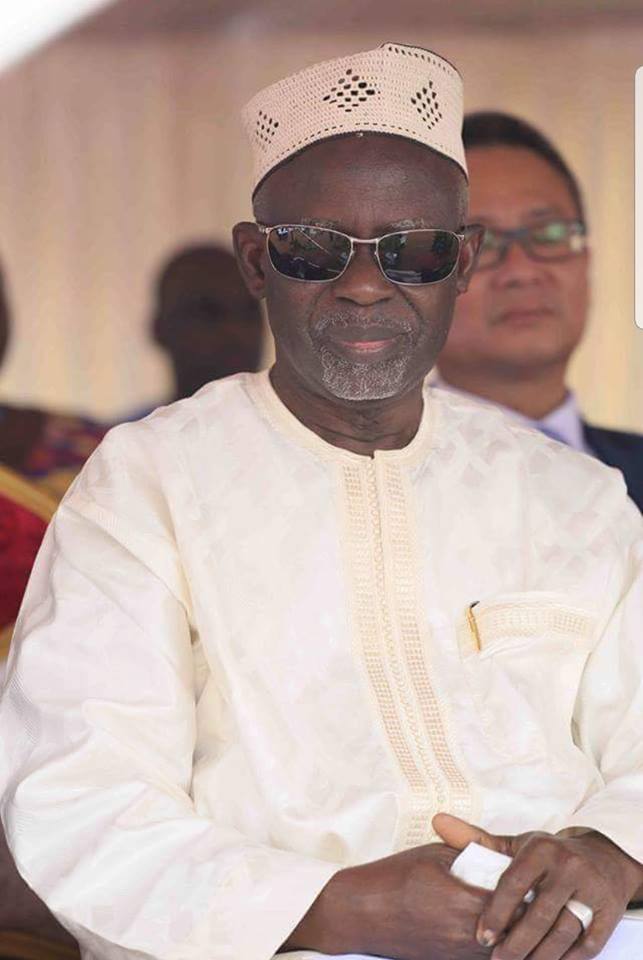
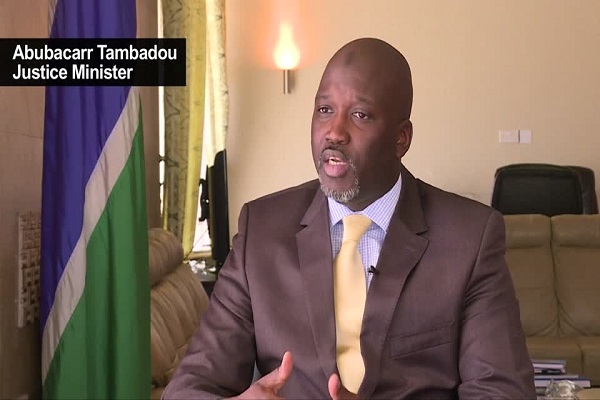
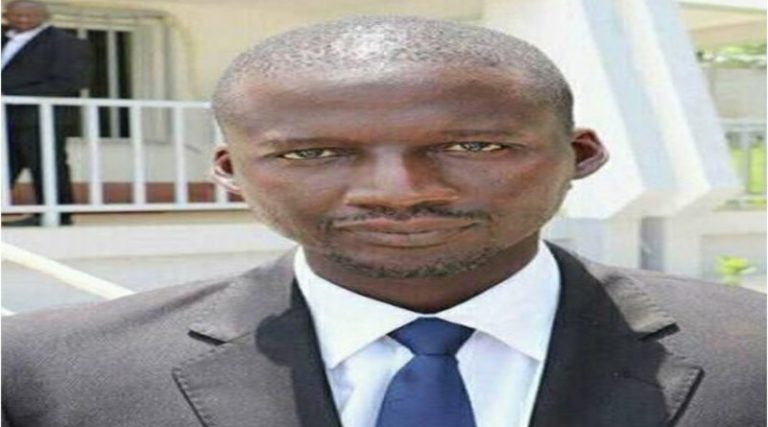
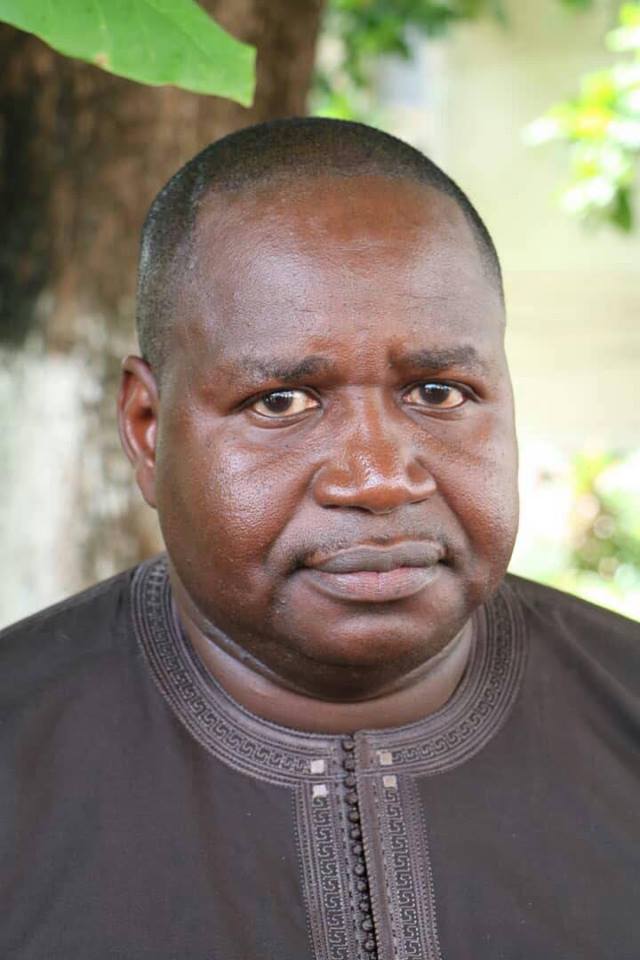

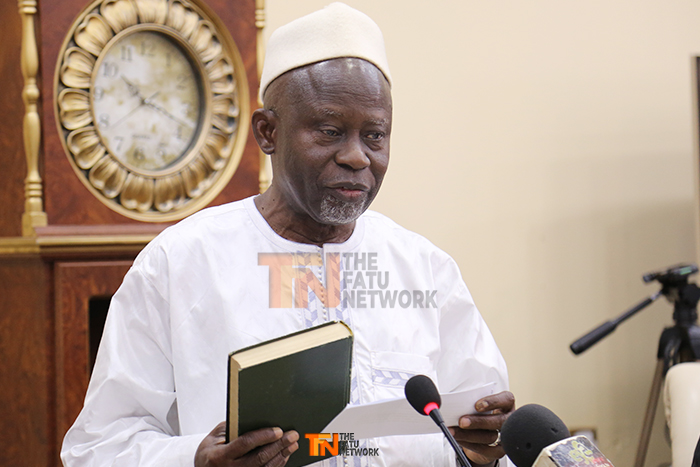
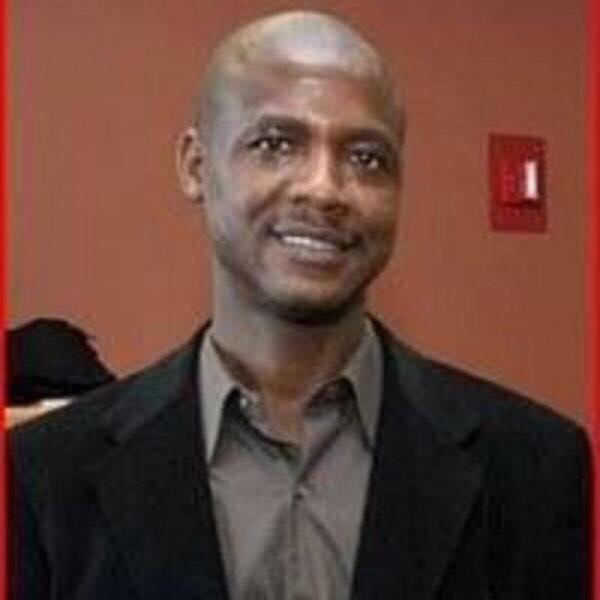
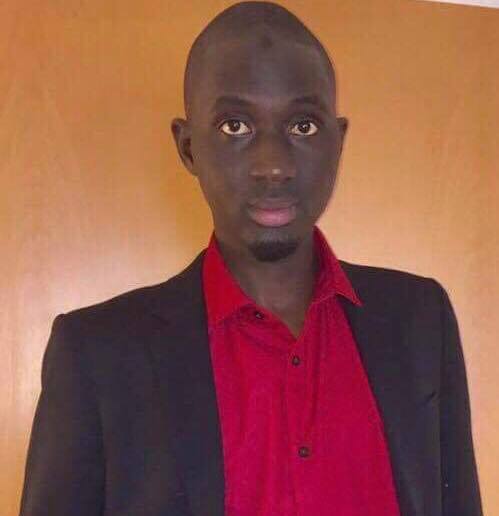
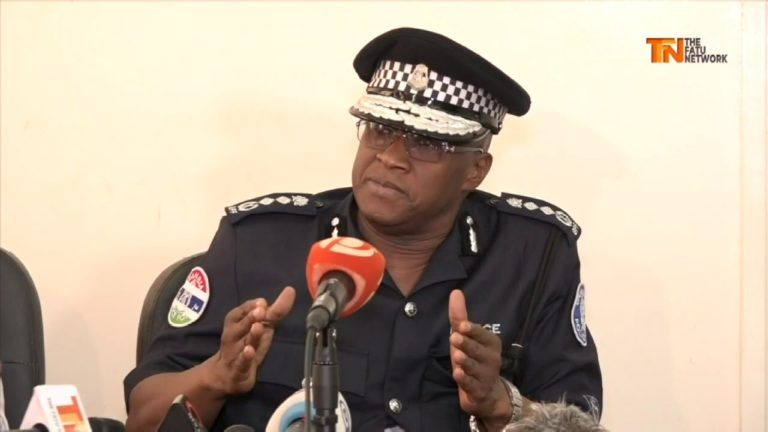

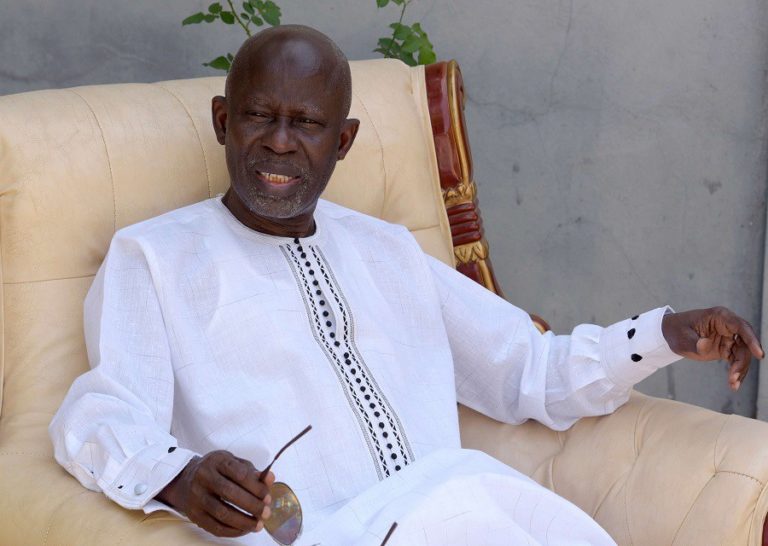
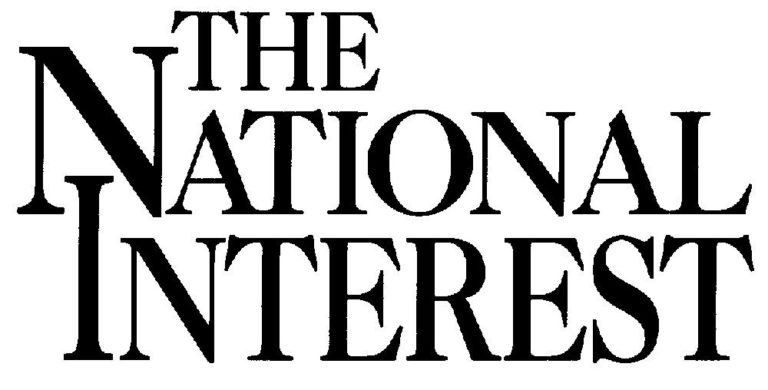



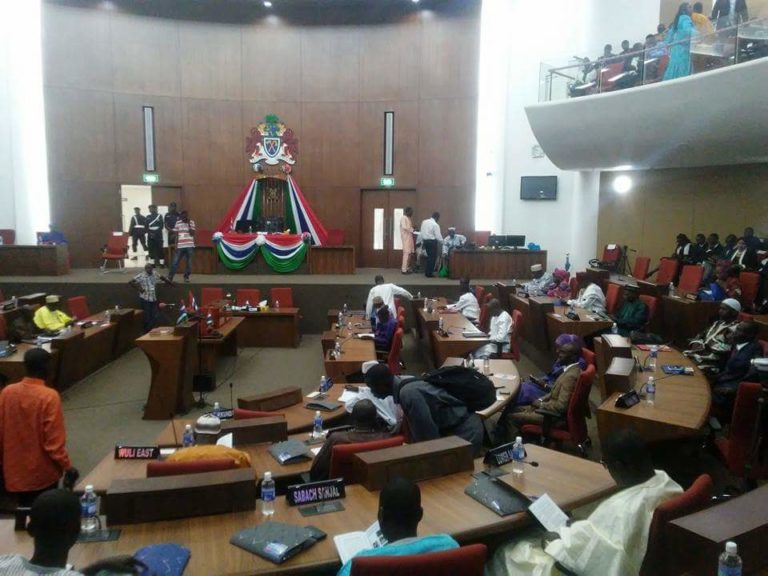

Are We Serious about the Fight against Corruption…?
Your pronouncements in Nouakchott, Mauritania about corruption and the constant talk about it in the country, including at the National Assembly, give hope to the people that it will soon be a thing of the past. There is hope in that.
However, given that a lot of allegations are being made every now and then and no investigations mounted (at least as far as I know), it tends to dampen the spirit about the fight against graft.
A few months ago, there were reports of massive corruption at the Gambia Immigration Department but then nothing was heard of it after the initial reports. It seems it’s business as usual.
Again a week or two ago, massive corruption was again alleged against the staff and management of the Social Security and Housing Finance Corporation. That saga is still ongoing as we hear allegations and counter-allegations almost daily but no investigations so far.
In yesterday’s issue of The Standard Newspaper, there was a report of a scandal which emanated from allegations and counter-allegations between the secretary, Mr Alagie Kurang and the Lead Council, Mrs Amie Bensouda. This has the potential of eroding the trust and confidence of the public on the Commission of Inquiry into the Financial Activities of the former president and his close associates commonly referred to as the Janneh Commission..
It is clear that many of these may or may not be true but considering that government is here to serve the people of the nation; and that it is entrusted with the national coffers, it behooves the government to investiga every allegation in order to unearth any finacual malpractice by government officials.
Without this, culprits will be emboldened and hold the view that they can do as they wish and nothing will happen. Investigations will also clear the names of peoople wrongly accused so they can salvage their reputaiins. This will be good for the country.
Considering the fact that human beings are basically selfish creatures, it is not difficult to see that many – if not most – will act in ways that are not in the interest of the greater good, the good of the nation. Thus, only legislation and implementation thereof can deter individuals from acting in corrupt ways.
Once people know that they will be punished and shamed if they behave inappropriately, they will desist from illicit taking of public funds.
Have a Good Day Mr President…
Tha Scribbler Bah
A Concerned Citizen